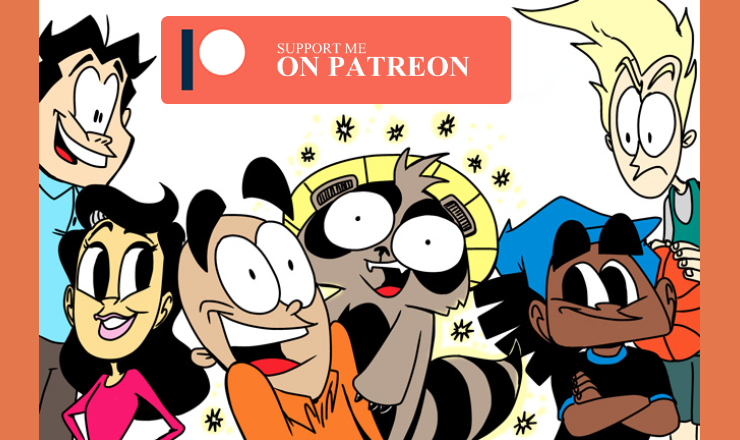4 Reasons Your Hobby Should Not Become Your Business
/If you’re good at something, it doesn’t have to be your side-hustle.
Photo by Victoria Heath on Unsplash
Let’s imagine you’re exhausted and up late working on an important personal project. The one that, once it’s out in the world, will put you on the map and attract attention. With some luck and a little bit of success, your dream of quitting your day job could come true.
Then what? You get to do that every day, all day? Is this really the future you’re hoping for?
Why can’t this be something you do for fun?
If you’re good at something, it doesn’t mean it has to become your job.
I know that’s counter-intuitive to what everyone’s touting online today, but it’s true. Your hobby shouldn’t always become your business.
I’m sure you’re good at many things. It doesn’t mean you have to turn them all into side-hustles that turn into big-time companies.
Unfortunately, I’ve learned this the hard way. My love for drawing comics and writing has led me to pursue making money from them as a side-hustle. It’s not as fun as it’s cracked up to be. Between deadlines, prospecting for clients, and balancing my work and projects with family responsibilities.
We live in a time now, with the internet giving us opportunities to easily share work with the world, where people think you should “Do what you love, and the money will follow.”
We all feel like we’re missing out if we don’t have a passion and pursue it for profit.
Contrary to popular belief, making money with what you love is hard. Does it have to be your goal? Here are four reasons why you might not want to turn your hobby into a business.
1. Hobbies should be fun
Why do you love doing your hobby? If it brings you a sense of joy, for example, isn’t that enough?
If all of your needs are being met by your day job, perhaps adding on more work to make your hobby into a business isn’t worth the extra stress and commitments.
Your hobby should be — and stay — enjoyable. Something you look forward to escaping into and forgetting about the outside world.
I remember my grandfather had several hobbies. He enjoyed making the most delicious fudge and giving it as gifts to family and friends. Should he have opened up a business selling fudge out of his kitchen? Not necessarily.
I doubt he enjoyed it enough to add on all the extra responsibilities involved with a bakery business.
He mainly wanted something fun and fulfilling to do in his leisure time. Making fudge brightened his days and added a little sweetness to others. For him, that was enough.
Knowing you can go deep into something at your own pace, where you think clearly and feel at ease, is a blessing. Don’t complicate it.
“I can elect something I love and absorb myself in it.”
― Anaïs Nin, The Diary of Anaïs Nin, Vol. 1: 1931–1934
2. Making it a business turns it into work
We don’t always know if what we love to do will be something we enjoy doing full-time. It takes experience, yes, but also honesty. Do you love your hobby so much that you wouldn’t mind regularly dealing with the business's complex, tedious, boring parts?
If you want to turn your hobby into a business, it will become work.
Drawing comics full-time has been a goal of mine since I was a kid. Even though I know it’s one of the most challenging forms of art to make good money in, I still go after it. I’ve had to take on other jobs to pay the bills when comics weren’t bringing in enough, and most of the time, comics would become my side-hustle.
Becoming a professional at anything means learning to work even when you’re not in the mood.
I learned to do that by making comics and pushing through the “resistance” in my head when it would try and hold me back from not only getting art done but taking care of more administrative tasks.
Now, I know I can be a professional comic artist because I like the day-to-day work involved. I haven’t reached my full-time goal yet, but I’ve had years of freelance experience to get a good idea of what it would feel like.
When you put your hobby to the test, by intentionally treating it like a business, you’ll be able to feel whether or not it’s something you could do as your job.
I get it. You might need a side-hustle right now. It could be that a side income is vital to save money or pay for outstanding bills. Does your hobby have to be the way you make that money, though?
There’s nothing wrong with getting a part-time job in retail or driving for Lyft for a certain amount of time — think seasonal work — to save up enough for you to get back into a good place.
Do anything you can to keep your hobby as an outlet and a source of release.
3. Should you monetize your obsession?
People can get way too into their hobbies. Like collecting memorabilia or toys, for example. Nothing wrong with those hobbies, but I’ve seen friends lose their minds over a piece of plastic. If you’re obsessed with a hobby, can you think straight enough to make it a business?
Will you identify all of yourself as that hobby if you make it a business and carry unrealistic expectations on your shoulders? For example, “I’m a writer now, so I must write every day for five hours, or I’m a failure.”
Sometimes we love a hobby so much; it becomes an obsession. If you can’t stop painting portraits of politicians to make a statement, and no one can give you feedback or suggestions on how to grow because you refuse to listen. Maybe this shouldn’t be your business.
You need to be open to pivot and take on new ideas when things aren’t succeeding for a business to work. If you can only do things your way because this hobby is everything to you, it should probably stay a hobby.
“Whatever you like to do, make it a hobby and whatever the world likes to do, make it a business.”
-Warren Buffett
4. Be selfish when it comes to your hobby
Keep something just for you. You don’t even need to share what you make or create with anyone. Let your hobby remain an outlet for life’s frustrations and hide it for yourself. If you need to share it with someone who has more experience and gives you feedback, great.
I bet there are plenty of creative people who work professionally and never show it to anyone. That way, it’s for themselves. Or, they keep it for their family and friends. If one of those people wants to buy from them or support the work, they can.
A few years ago, I was learning to play the ukulele. I wanted to do it for fun with no expectations of performing live in front of strangers. It would be a relaxing hobby I didn't need to press myself to do professionally, like drawing comics.
I spent about two years practicing chords and learning songs on the uke. Having a hobby only for the fun of it was terrific. The only problem, music takes a regular committed effort to improve. Balancing work, drawing comics, and being a family man proved to be too much.
It hurt, but I had to stop playing the ukulele. I went from practicing every day to a few days a week, to only once a month. All of my time went into improving as an artist and not a musician.
Facing the hard truth—I didn’t have time for a musical hobby—was tough to face. But, I accepted it and put down the uke. Who knows, I hope to have time to get back to playing it again in the future when I have more time for myself.
Drawing in my sketchbook is purely for fun now. I don’t have to share my scribbles with anyone if I don't want to, and the practice makes me a better artist for the comics I share with the public. Hobbies can have a private and a public side if it helps keep you growing and feeling balanced.
In conclusion
All hobbies are not good businesses. Just about anything can be made into one, but you have to be honest with yourself about what you can handle.
Find a nice balance of interest in the subject matter, love of the creation process, and detachment from the perfection of the final result.
When you can look at your work objectively, share it with others, take criticism, make changes, and still enjoy what you’re doing. It might be the proper pursuit for you.
Try and keep these points in mind when deciding if your hobby should become a side-hustle:
Hobbies should be for fun. If yours is mainly for fun and a way to relax and unwind, don’t make it a side-hustle.
Making your hobby into a business turns it into work. Are you ready to deal with the not-so-fun parts of running a company connected to what you love?
Don’t try and make money from your obsession. If you can’t even think straight while doing what you love because you’re so engrossed by it, maybe it should stay a hobby. It would be best if you could be objective about your work to grow it as a business.
Keep your hobby to yourself if you choose. You don’t have to share it with anybody. Remember, I didn’t play the ukulele for people I didn’t know. It was my private hobby. One I’m looking forward to getting back to soon.
Make time for your hobbies in your leisure time to stay balanced and recharge. Let your interests become your job or side-hustle when you need one.
That way, you can enjoy what you do for a living and still have energy for your passions.
Struggling with creativity and putting your work out regularly? Join my (free) email list and discover how to upgrade your mindset here.





